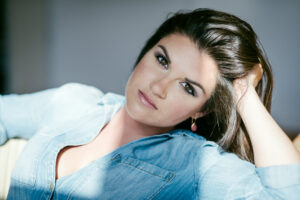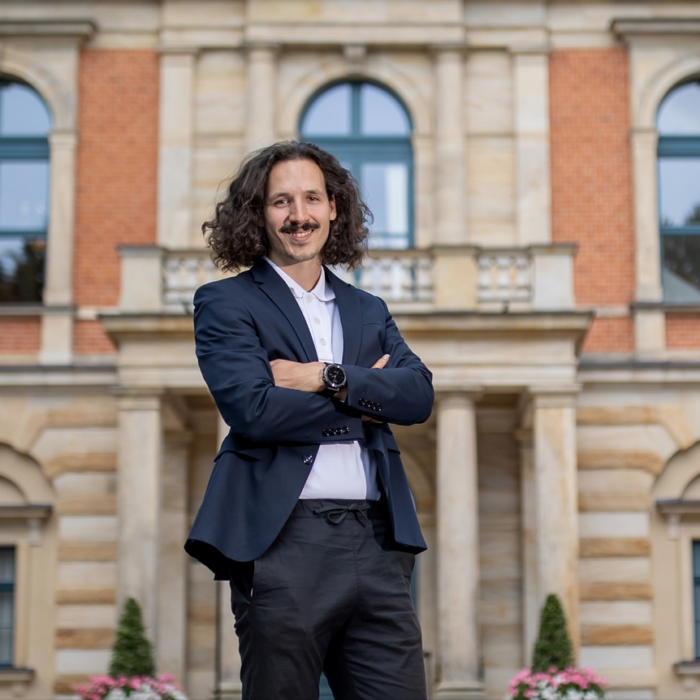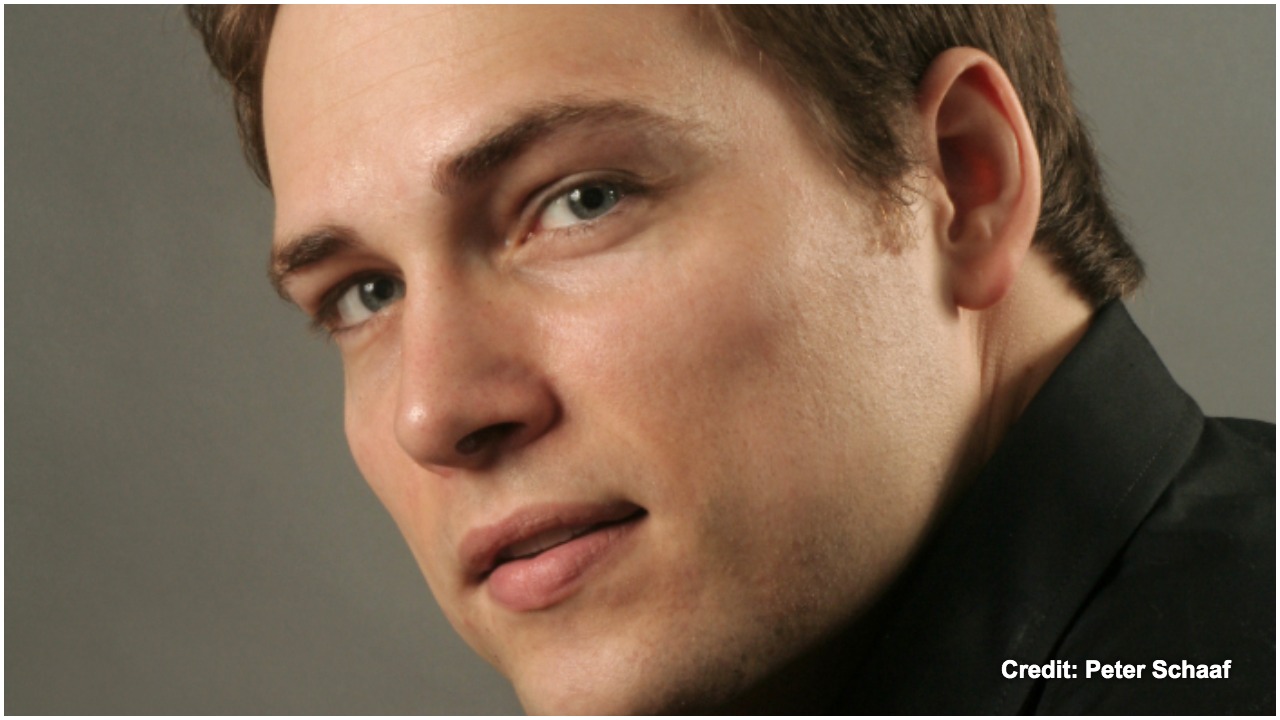
Q & A: Soprano Kathryn Lewek on the Ravinia Festival, The Queen of the Night & Taking on French Operas She Never Thought She’d Get to Do
By David SalazarFor many, Kathryn Lewek IS the Queen of the Night. She holds the record for most performances of the role at the Metropolitan Opera and has taken her interpretation of the famed villain to opera houses such as the Royal Opera House, the Vienna State Opera, and the Gran Teatre del Liceu, among many, many others. This summer, she will be taking it to the Ravinia Festival.
The soprano recently spoke to OperaWire about her interpretation of the Queen of the Night, including the production that most inspired her interpretation. She also talked about some other opera projects she has in the works, including two debuts of French operas.
OperaWire: How did you first come to opera? When did you realize that you wanted to pursue this career?
Kathryn Lewek: My introduction to opera is perhaps too far back to recall. Opera and classical music have always been ingrained in the fabric of my life due to my grandmother’s opera singing background (as a contralto until she gave up her ambitions to become a mother after WWII) and my mother’s career as a music educator. I was initially very serious about pursuing a career as a concert pianist, and much of my childhood was spent practicing. My mother taught piano out of our home, and I often had to compete for time on the keyboard with her students. I always had a penchant for the dramatic, so as a tween, my parents signed me up for acting classes, which I adored. It wasn’t until I was 15 or so that I realized, with the help of a new music teacher, that I could combine my love of classical music and acting on the stage and pursue a career in opera. It felt like a very natural progression, despite facing constant doubters who questioned my choice. I often heard comments like, “And what is your backup plan” and “What will you do for your day job?” I didn’t waste my energy thinking about those things!
OW: What are some of the major highlights of your career so far?
KL: My career so far has been so rewarding, it’s hard to choose the highlights. Falling in love with my husband, Zach Borichevsky, while singing Lucia to his Edgardo; singing Handel’s Orlando at the edge of the globe in Hobart, Tasmania; delving deeply into transgender subject matter in Handel’s Ariodante with Cecilia Bartoli at the Salzburg Festival; singing my first Violetta alongside my husband as Alfredo and my best friend, Jessica Dold, singing Annina at Toledo Opera; and of course seeing the audience on their feet when the Met raised their house lights to honor me at my 50th performance just a couple months ago – I will never forget that feeling. I do this job to connect to others – my colleagues and the audience alike. All of my favorite moments in my career are inspired by the deep connections I have made.
OW: What are some of the greatest challenges you’ve overcome and what did you learn from them?
KL: I think the two greatest challenges for me in this job can be summarized into two words: Motivation and Comparisons. Success in this business largely stems from self-motivation, and at times this has been a struggle for me.
During the pandemic, I faced difficulties in finding the motivation to practice as there appeared to be no end in sight. Similarly, throughout both my pregnancies and the year following each birth, I experienced immense struggles due to sheer exhaustion. Having two young children creates new challenges every day, and while it is incredibly rewarding to travel as a family, it’s also extremely difficult to carve out time in my schedule to ensure I stay on top of the music I need to learn.
I also struggle with honoring my current achievements at any given moment. While I feel immensely blessed to receive recognition for my successes on stage as the Queen of the Night, there is occasionally this nagging voice that sees this accomplishment as a failure because I now find greater artistic fulfillment when I’m performing other roles. I find myself longing to be known for singing a larger variety of roles, rather than just the one. Comparing one’s career with others is human nature, but never leads to anything good!
OW: With regards to Ravinia, what are some of your favorite memories and experiences with the festival?
KL: I have family members who have been coming to this festival since the 1960s, so it’s always been a goal of mine to see what the fuss was all about! Now, I get it. The grounds are so beautiful, the Martin Theater is gorgeous both in sight and sound, and the atmosphere is so relaxed and full of joy in music making. I love how this festival brings together so many different genres of music. There is something for everyone. This week has been incredibly rewarding for me. I am singing alongside some old friends and favorite colleagues of mine, including Matt Polenzani, Janai Brugger, and Josh Hopkins. I have also had the pleasure of meeting and making new friends who have helped me celebrate my 40th birthday, which was on Wednesday! This week has been just one long laugh fest and a wonderful reunion of old friends doing what they love to do in a beautiful place.
OW: You will be performing as the Queen of the Night in Ravinia this summer. It is a role that you have performed everywhere. Who is the Queen of the Night to you and how has your understanding of the character changed over the years?
KL: The magical (no pun intended) thing about the Queen is that she is a chameleon. In my opinion, her character’s quality and interpretation adapt perfectly to the current production I am involved in. At Ravinia, I’ve had the delightful opportunity to portray her character in a simple and genuine way.
The performance is semi-staged, where we are singing in front of the orchestra on the stage, allowing the Queen to really serve the music and the simple emotional gestures that are plainly laid in the text and on the staff.
In certain productions, my interpretation of the Queen becomes quite intricate and complex. In other cases, the most appropriate way to fit into the fabric of the show is to simplify the Queen to the likes of a two-dimensional Disney villainess.
At the heart of her, I have learned, she is not a purely evil and vengeful person, but rather a deeply frustrated woman who has seen her life completely upended. Her sense of security is shattered, and at this vulnerable moment, her daughter is kidnapped from her. I don’t believe that she deals with these circumstances in the healthiest way, but I have compassion for her position.
OW: Of the productions you have been a part of over the years, which ones have been the most impactful on your interpretation of the Queen of the Night?
KL: Simon McBurney’s production, which I recently completed at the Met this past spring, and also performed twice before at the Aix-en-Provence Festival in the south of France in 2014 and 2018, has undoubtedly provided me with the most intricate and satisfying interpretation to build upon for my portrayal of the Queen over the years.
This particular Queen is depicted in such reduced circumstances that she requires assistance to move around the stage. She has been robbed of power, strength, youth, and dignity. As a haggard old woman, her appearance serves as an immediate exposition to the audience, revealing the challenges she has endured and the ones she continues to face. Her intense and desperate plea in the Act two aria, “Der Hölle Rache,” is her last frenzied attempt to change her fate, and it nearly kills her. This aria, which is most often the ultimate display of vocal and vengeful power, is instead made into an example of how hatred breaks those who hold it. Collapsing into a wheelchair in sheer exhaustion and pain at the conclusion of the aria, it comes as no surprise that she will meet her demise at the end of the opera.
The most beautiful and uplifting moment of this production comes when the Queen collapses at the foot of the stage after the final quintet. Abandoned by those who once served her, she is left vulnerable to Sarastro and his people. Rather than condemning her, Sarastro forgives her, and through this pardon, she is healed. She then sinks into the fabric of the many faces onstage as yet another storyteller in this tale that we “hope” has moved those we have performed it for.
OW: Two other upcoming projects for you include “Lakmé” and “Roméo et Juliette?” What excites you most about taking on these characters? Both are French romantic operas. What are the major challenges of this repertoire?
KL: I’m thrilled to debut these new roles this season! Last season I debuted the four heroines in “Tales of Hoffmann” in Berlin and Countess Adèle in “Le Comte Ory” in Chicago – so my French is in top shape and already on the tip of my tongue.
At one point, I believed I might never sing the role of Lakmé. It is much lighter than the repertoire I’m currently exploring, and the challenge lies in maintaining the agility that has started to diminish while focusing on developing the richer and deeper colors required for the roles I’ve been honing in on.
Juliet, on the other hand, feels as natural as breathing to me, and I’m so delighted to debut yet another role at my favorite regional opera company in Toledo, Ohio, surrounded by friends, and singing opposite my favorite tenor – my husband! Both of these roles display characters that are rich and complex, but at the same time naive and innocent. As a newly minted 40-year-old who has spent her life in show business, naivety and innocence were qualities driven out of me decades ago – so I’m looking forward to exploring these human facets again.
OW: What are some other operas and roles that you want to explore?
KL: My voice keeps changing with experience and time, so the possibilities have begun to feel endless – though I have been acutely aware that there is an expiration date for certain roles as my voice grows. I am excited about performing roles that are already in my repertoire, such as Violetta and Lucia, which I believe I can further develop over time, but I have a hankering to sink my teeth into the bel canto Queens.
Händel holds a very special place in my heart and I look forward to bringing many of his heroines to life in the future. There is no set of rules for who can sing Händel, which means I have many years ahead of me to explore his characters. I’m also deeply intrigued by the prospect of crafting new characters, and I will have the opportunity to do so later this season in collaboration with Matthew Aucoin and Peter Sellars.
Although there is an extensive list of roles I would love to explore, I’ve come to realize that it’s more rewarding and productive to direct my energy entirely toward the current role I am singing and wait for the delightful surprise that will be my next role.


